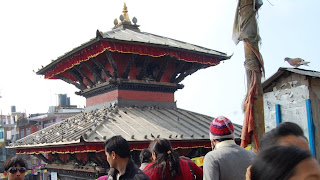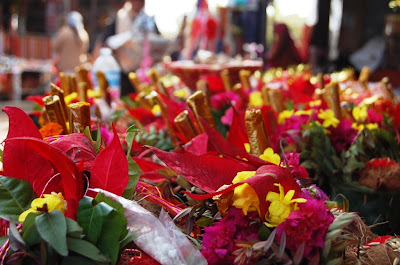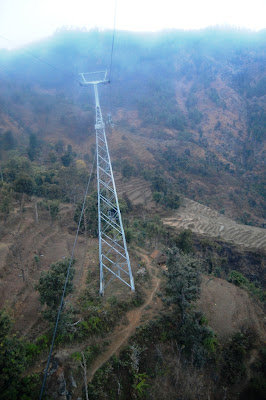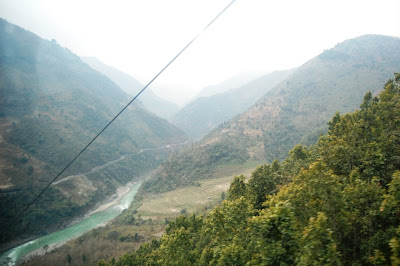 One of the temples of Nepal
One of the temples of Nepal
The legend of Manakamana Goddess goes back to the time of the Gorkha
king Ram shah (1614-1636 AD). His queen, the story goes, possessed
divine powers known only to her devotee and religious preceptor, Lakhan
Thapa. On one occasion, the king chanced upon the revelation of his
queen as goddess and Lakhan as a lion. But as soon as he told the Queen
what he saw, death took him. When the Queen approached the funeral pyre
to commit sati as was the custom back then, she consoled the lamenting
Lakhan by saying that she would reappear soon near his home.
Six
months later, a certain farmer ploughing a field hit a stone, cleaved it
and saw blood and milk flow forth. When the news got around to Lakhan,
he knew that his wish had come true. The flow ceased when Lakhan
worshipped the stone using his tantric knowledge. When the then ruling king of Gorkha learnt of the incident, he donated land and a grant to perpetuate the worship of Manakamana. This deed was invested with a Lal Mohar, and the present Thapa-Mangar pujari is the 17th generation descendant of Lakhan Thapa.
The shrine of Manakamana has been renovated many times over the centuries. The present four-story temple on a square pedestal has pagoda --style roofs, and the entrance is marked by one stone which is the sacrificial pillar. The Thapa-Mangar priest performs rituals behind closed doors by offering egg, orange, rice, vermillion and strips of cloth to the Goddess, only after the pujari is done with his puja, that the public's turn comes.



























